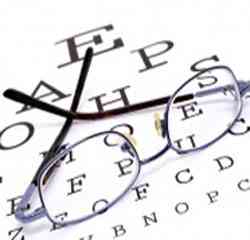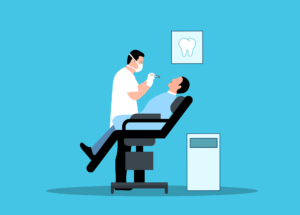Health and Dental Insurance for Self-Employed People
By Krista DeKuyper | July 11, 2023 |

Being self-employed comes with many benefits, such as being your own boss and having control over your work schedule. However, one of the challenges that self-employed individuals often face is finding and obtaining health and dental insurance coverage. In this blog post, we will explore the importance of health and dental insurance for self-employed people, the options available to obtain coverage, considerations to keep in mind when choosing a plan, and tax considerations for insurance premiums.
Understanding the Importance of Health and Dental Insurance for Self-Employed People
Health and dental insurance are crucial for everyone, but they become even more essential for self-employed individuals. Unlike individuals who are employed by a company, self-employed individuals do not have access to employer-sponsored health insurance plans. This means that they are responsible for finding and paying for their own insurance coverage.
Having health and dental insurance for self-employed people is important for several reasons. Firstly, it provides financial protection in case of unexpected illnesses or medical emergencies. Without insurance, medical expenses can quickly accumulate and put a significant strain on a self-employed individual’s finances.
Secondly, health insurance ensures that self-employed people have access to necessary medical care and treatments. Regular check-ups, preventive care, and timely treatment of health conditions are essential for maintaining good health and productivity, especially when working independently.
Lastly, dental insurance is important for maintaining oral health. Regular dental check-ups, cleanings, and treatments can help prevent more serious dental issues down the line. Poor oral health can lead to pain, difficulty eating, and even impact a person’s overall well-being.
Options for Obtaining Health Insurance for Self-Employed Individuals
Self-employed individuals have several options when it comes to obtaining health insurance. One option is to purchase an individual health insurance plan directly from an insurance provider. These plans can be tailored to individual needs and budgets, offering a range of coverage options.
Another option is to explore health insurance marketplaces, such as the one provided by the Affordable Care Act (ACA) in the United States. These marketplaces allow individuals to compare and purchase health insurance plans from different providers, often with subsidies available based on income.
Self-employed individuals may also consider joining professional associations or organizations that offer group health insurance plans. These plans leverage the collective bargaining power of the group to negotiate better coverage and rates.
Coverage Considerations for Health Insurance Plans
When choosing a health insurance plan, there are several considerations to keep in mind. Firstly, it is important to understand the extent of coverage the plan offers. This includes coverage for doctor visits, hospital stays, medication, and preventive care services.
Additionally, self-employed individuals should consider the network of healthcare providers included in the plan. Ensuring that preferred doctors, hospitals, and specialists are covered can help avoid unexpected out-of-pocket expenses.
Out-of-pocket costs such as deductibles, co-pays, and coinsurance should also be taken into account when selecting a health insurance plan. These costs can significantly impact the overall affordability of the plan.
Access to Dental Insurance for Self-Employed Individuals
Obtaining dental insurance as a self-employed individual can be similar to obtaining health insurance. It is possible to purchase individual dental insurance plans directly from insurance providers or through health insurance marketplaces.
Additionally, self-employed individuals may consider joining organizations or associations that offer group dental insurance plans. These plans can provide cost savings and wider coverage options compared to individual plans.
Dental Insurance Coverage and Considerations
When choosing a dental insurance plan, it is important to understand the coverage provided. Dental insurance typically covers preventive care, such as cleanings and check-ups, as well as restorative treatments, such as fillings and crowns.
Some dental insurance plans may also cover orthodontic treatments, oral surgery, and major restorative procedures. However, it is essential to review the specific coverage limits and exclusions of each plan to ensure it meets individual needs.
Bundled Health and Dental Insurance Plans for Self-Employed Individuals
Some insurance providers offer bundled health and dental insurance plans specifically designed for self-employed individuals. These plans combine both health and dental coverage into a single policy, providing convenience and often offering cost savings compared to purchasing separate plans.
Bundled plans can make it easier to manage insurance coverage and claims, as all the information is consolidated in one place. However, it is crucial to carefully review the coverage details and costs of these plans to ensure they meet individual needs.
Tax Considerations for Health and Dental Insurance Premiums
Self-employed individuals may be eligible to deduct health and dental insurance premiums as a business expense when filing their taxes. This can help offset the cost of insurance and reduce the overall tax burden.
It is important to consult with a tax professional or accountant to understand the specific tax rules and deductions available for health and dental insurance premiums in the respective country or region.
Tips for Choosing the Right Health and Dental Insurance Plans for Self-Employed Individuals
- Assess individual healthcare needs and determine the level of coverage required.
- Compare multiple insurance providers and plans to find the most suitable options.
- Consider both monthly premiums and out-of-pocket costs when evaluating affordability.
- Review the network of healthcare providers to ensure preferred doctors and hospitals are covered.
- Understand the coverage details, including limitations and exclusions, for both health and dental insurance plans.
- Consider the tax implications and potential deductions for insurance premiums.
- Seek advice from insurance brokers or professionals who specialize in self-employed insurance.
Conclusion
Health and dental insurance are essential for self-employed individuals, providing financial protection and access to necessary medical and dental care. There are various options available to obtain coverage, including individual plans, group plans, and bundled plans. Considerations such as coverage, network of providers, and cost should be carefully evaluated when choosing insurance plans. Additionally, understanding the tax implications and seeking professional advice can help self-employed individuals make informed decisions and ensure they have the right coverage for their needs.
If you want to take a look at individual health insurance that best fits your needs, use our instant quoting tool!






























